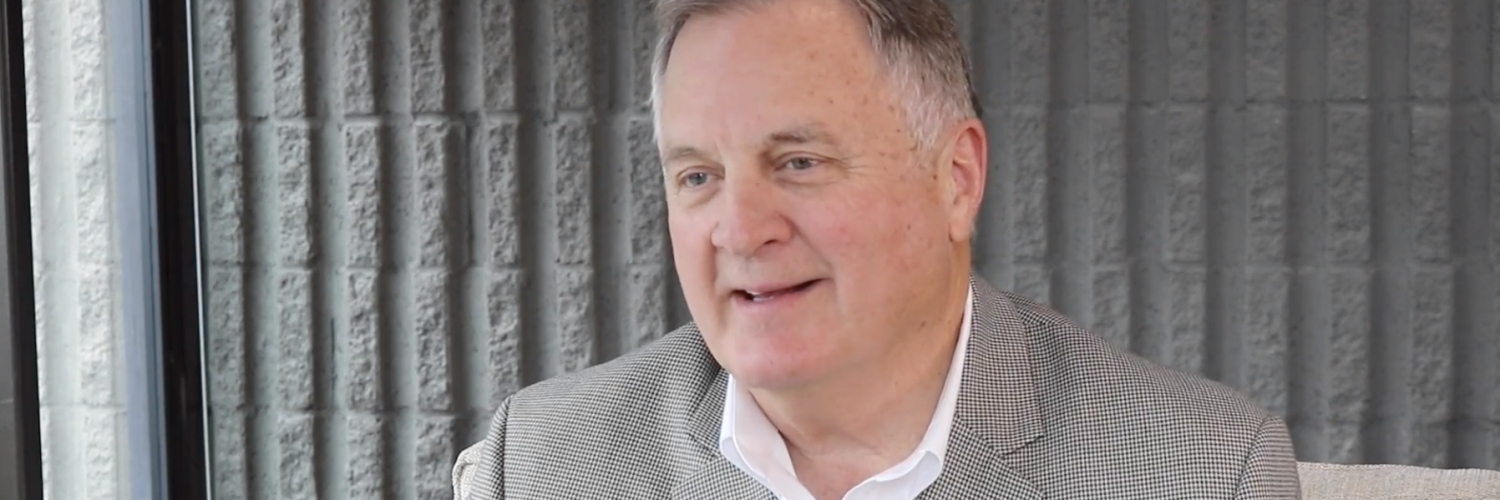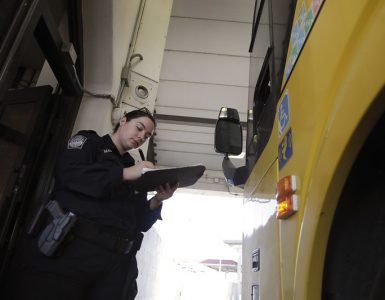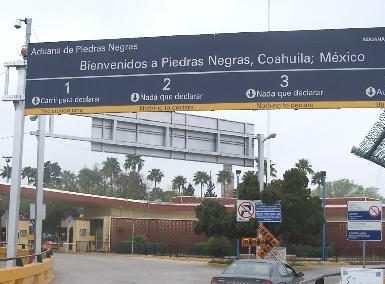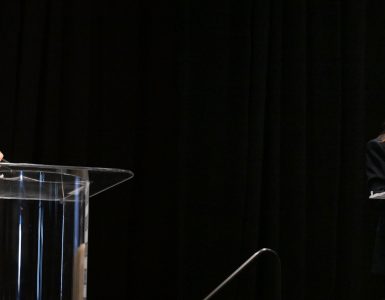Bruce Wright, economic development consultant and former president and CEO of the UA Tech Park, began his involvement with the Arizona-Mexico Commission (AMC) in 1992. He serves on the AMC board of directors and has been active in the transportation committee and the economic development committee. Wright told CBN he would like to see Arizona and Mexico continue to build a relationship in the technology sector.
Question: What is your professional background?
Answer: Well, for the past 30 years I’ve been at the University of Arizona. In the early part of my career, I served as the rector of the university’s office of economic development. And, for the last 20 years, I’ve been the president [and] CEO of the UA Tech Park, which is a large park that houses technology companies that are trying to develop new ideas, new products, new services.
Q: When did you first become involved in the Arizona-Mexico Commission?
A: I first became involved in the Arizona-Mexico Commission back in 1992. A group of Tucson business people approached the university about trying to develop a plan for positioning Southern Arizona to be part of the emerging North American free trade area. The NAFTA agreement was in draft and we were trying to anticipate how we could participate in what was going to be this free trade region between Canada, Mexico and the United States. That work caught the attention of the Arizona-Mexico Commission and evolved into what we call the Arizona-Sonora Strategic Economic Development Plan. And, that’s the concept of trying to develop Arizona and Sonora and a cross-border binational region and to play upon the economic interconnections and complementarities between the two states. So, that was my real involvement and it’s resulted in 27 years of working with the commission on a whole series of projects and initiatives to build cross border trade and relationships between [not only] Arizona and Sonora, but Arizona and Greater Mexico.
Q: What is your role with the Arizona-Mexico Commission?
A: I serve on the board of directors of the Arizona-Mexico Commission. I’ve also been active in two committees, the committee on transportation and the committee on economic development. Those committees meet twice a year, they include representatives of both Sonora and Arizona and we work on a whole series of different projects and ideas, again, about how to promote this binational region.
Q: Why do you think the work the Arizona-Mexico Commission does is important for Arizona?
A: Well, the relationship between Arizona and Mexico is critically important. Mexico is Arizona’s largest trading partner. So, our economy is intertwined with success in Mexico. We also have other relationships that are important around health and education and so on. The commission plays a vital role in bringing all the participants that are engaged in cross-border activity together and gives them the opportunity to talk and discuss ideas and in some cases solve problems. The Arizona-Mexico Commission has also played an important role in promoting factual information about our relationship with Mexico. Because of border immigration and border security, there is a lot of controversy and contention around the border and there’s a lot of misinformation. You know, 95 percent of all the things that happen in Arizona and Sonora are very positive. It’s only a small five percent of those activities that are really problematic. And, I think the commission does a really good job of promoting the positive side as well as providing education on the critical issues that we face regarding the relationship between the two.
Q: How does the Arizona-Mexico Commission impact the state’s universities, such as U of A?
A: Well, all three of the state’s public universities have long standing ties to educational institutions in Mexico. U of A, in particular, has a 60 or 70-year history of doing collaborative research in educational programs. The commission plays a really important role to help be a catalyst for continuing those kinds of relationships. As an example, Mexico has invested a lot in the recent years in developing a technology sector. And, much of that technology has emerged from their universities just as it has here in Arizona. So, there’s a huge opportunity to link that collaborative research and connect then the outcome of that research, which is products and services in the high-tech sector.
Q: Why is it important for Arizona to focus on maintaining and continuously build a relationship with Mexico?
A: Well, Mexico is Arizona’s largest trading partner. Every year, there [are] billions of dollars of trade that go back and forth between the two places, especially between Arizona and Sonora. Maintaining that relationship is critically important to the success of our economy. And, because of our strategic geographic location within the North American area, we have a key opportunity to really become a major center and have been a major center of that trading relationship. And so, the commission plays a really important role in promoting that. Several years back, there was a lot of controversy about immigration. Arizona developed a very negative image in Mexico. Thanks to the leadership of Governor Ducey, he has rebuilt that relationship, repositioned Arizona to actually have one of the best sets of relationships with the government of Mexico and the states of Mexico and we are all beneficiaries of that. That relationship creates jobs and job opportunities for Arizonans and also jobs and job opportunities for people in Mexico. In addition, there are a lot of family ties between the Hispanic community here in Arizona and their relatives in Mexico. There’s a lot of cross border activity that happens [such as] tourism, citizens from Sonora and Mexico coming in to visit, to shop, to recreate and we are all the beneficiaries of that. So, that’s a very important relationship. And, the commission has really helped to build cultural, educational and social ties between Mexico and Arizona.
Q: The Arizona-Mexico Commission is celebrating its 60th anniversary. What has been its biggest achievement in the last 60 years?
A: Well, the Arizona-Mexico Commission and its companion organization, the Sonora-Arizona Comisión, are two unique organizations- unique among all states along the U.S.-Mexico border. For 60 years we’ve been promoting this relationship. It began with Governor Paul Fannin and it’s been embraced by every governor since then. It is a very special relationship and it gives us a unique advantage, a competitive advantage, in building really strong and productive ties between Mexico and Arizona. Without the commission, I don’t know that we would have that kind of relationship. Every year it continues to grow and expand so the commission is vitally important. It also has been an important tool for our governors to use in building relationships with Mexico. Governor Ducey has done that really well. He’s made Mexico a major priority for his administration, he uses the commission as a tool to help him build relationships with the federal government, the state government, with the business community in Mexico and then bring all that back to Arizona and make it something that is really a value to business and so on. Also, the commission has been able to show this relationship and use it as a model for how the rest of the United States can engage productively and effectively with Mexico. And, it’s caught a lot of attention in Washington D.C. about how Arizona and Mexico have really worked together.
Q: What is your top priority for 2019?
A: I’d like to see Arizona and Mexico continue to build this relationship in the technology sector. Arizona is recognized as a major high-tech state with aerospace and defense, with optics, with biosciences and so on. Mexico has made a huge investment in building a new tech sector growing out of their university of research. I think there’s an opportunity for us to really have a strong relationship in this whole tech sector. So, how does that translate into value for Arizona? These emerging high-tech companies in Mexico ultimately are going to want to enter the U.S. market. We ought to be the place of first choice for them to come into the [United] States and establish a place of business and begin their business activities. And so, what I’d like to do is see us continue to reach out to those technology companies and present Arizona as a place for them to do business.
Q: What is your favorite memory with the Arizona-Mexico Commission?
A: All the way back to when we started focusing on the Arizona-Sonora connection and NAFTA, the universities- NAU, ASU, U of A- did a series of studies to look at how much economic interconnectivity there was between the two states. We discovered it was in a lot of different areas: tourism, trade, agriculture, mining, and so on. So, we began to build this strategy about how we could link these two states, particularly Arizona and Sonora, to one another and position them within the North American Free Trade [Agreement]. So, we came up with the concept of the CANAMEX trade corridor, building a corridor all the way from Alberta, Canada through the mountain west part of the United States, through Arizona and then down into Mexico all the way to Guadalajara. One of the key elements of that was that the highway system was inadequate to serve as a trade corridor. So, we put forward a number of proposals to build new infrastructure to promote trade. That resulted in a new port of entry in Yuma-San Luis [and] improvements to the Mariposa port of entry in Nogales, which is the primary source of trade moving across the border in Arizona, and the building of a new bridge across the Colorado River. And, I think for me, the most exciting personal thing was standing on the middle of that new bridge at its dedication and seeing literally 10 years, a decade of work, going into really finding the federal and state funding to build this new bridge and create this highway corridor through the entire part of the United States.
Q: Is there anything else you would like to mention?
A: I think one of the things that I’m concerned about is because of the issue related to immigration and border security, there are a lot of Americans who look at the border and the border states as being not great places to live and work and play. And, that their relationship with Mexico is very negative. And, in fact quite the contrary is true. The majority of what happens between Arizona and Mexico is enormously positive and it’s important to our state economy and to our national economy. And, we need to continue to promote and to educate not only our own state, but the whole North American area as to why it’s important that we have this relationship with our ally and partner in Mexico. Yes, there are problems and they are significant problems. But, they only represent part of this relationship we have. And, as I said before, trade, cultural exchanges, family ties- there’s a whole series of reasons why Mexico is one of our most important allies and partners. I hope that we can show the rest of the nation the way to do that and to do it in a way that doesn’t compromise border security and immigration issues.
















Add comment